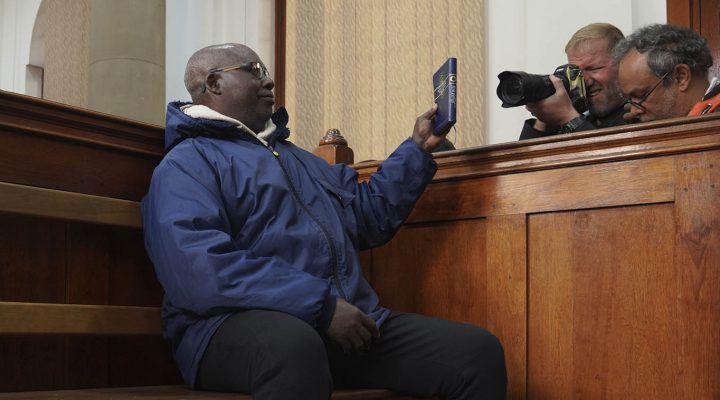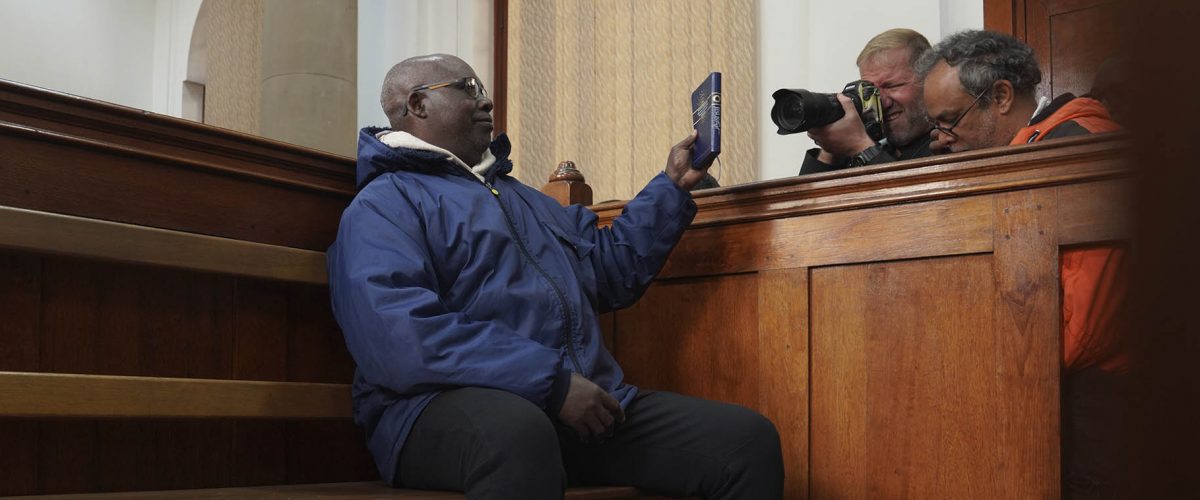Fulgence Kayishema — Africa’s most wanted man — was arrested in Cape Town, South Africa, five weeks ago after spending 30 years on the run. That one of the world’s biggest war-crimes suspects lived freely shines a spotlight on why South Africa is a preferred destination for war-criminals.
Kayishema is the police inspector who is accused of organizing and executing the throwing of grenades on Nyange church in Kivumu, a Catholic parish in Rwanda’s Kibuye prefecture, on April 15, 1994.
According to the indictment the Rwanda government unsealed in 2001, about 2,000 ethnic minority Tutsis sheltering in the Catholic church died from the explosives, survivors were bulldozed, and they were buried in mass graves — and Kayishema actively participated in the atrocity. The massacre was one of the 20th century’s worst church-site killings and forms part of the gruesome Rwanda genocide where the UN says nearly 800,000 (mainly Tutsi) Rwandans were brutally murdered by their fellow citizens of majority Hutu ethnicity.
On May 25, Kayishema was casually arrested by police commandos in South Africa at his workplace. He led a low-key life under a different name and was working as a security guard on a wine farm near the coastal city of Cape Town.
“I have been waiting a long time to be arrested,” Kayishema reportedly told police detectives who had surprised him in an evening arrest.
The accused mass murderer wields a Bible in his court appearances.
That Kayishema was able to live under the radar easily in South Africa for decades has shined a spotlight on why South Africa is such a “perfect” hideout for war criminals from all over the world.

Yasin Kakande
“South Africa is located at the southernmost tip of the African continent. That’s far away from the rest of the world for determined war criminals to pose as bogus asylum seekers,” according to Yasin Kakande, human rights law advocate and author of Why We Are Coming.
“But most importantly, South Africa is pretty much a country of very weak law enforcement — murderers, rapists, fraudsters operate with impunity assisted by compromised police insiders,” he said. “War criminals can easily slip into such a country and melt away into anonymity.”
Kakande points to the recent case of Krasimir Kamenov, one of Eastern Europe’s most wanted crime suspects, who was living luxuriously and freely in Cape Town until a gunman shot him dead four weeks ago. South Africa’s lawlessness is fearsome, with the country’s police minister recently reporting 6,289 murders were committed in just the first quarter of 2023.
“South Africa’s police are thinly stretched, and keeping tabs on foreign wanted criminals who are lying low is sometimes not a priority,” agrees Siko Maloi, an activist and retired evangelical priest who is involved in a community policing forum in Johannesburg.
Other experts point to South Africa’s diplomatic stance which allows certain war criminals to take advantage of applying for bogus asylum claims on arrival in the country, knowing full well they won’t be easily extradited to places where they are indicted.
South Africa has frosty diplomatic relations with Rwanda, for example. Rwanda accuses South Africa of harboring Rwandan war criminals who are living there under refugee claims. South Africa in turn accuses Rwanda’s secret police of slipping into South Africa to assassinate dissident Rwandese exiles.
“War crimes suspects are sophisticated, or very educated men and women. They can spot diplomatic tensions and play countries that don’t like each other and seek safety in either,” said Vumani Bondo, a South Africa extradition law expert.
Kayishema will likely be extradited to the International Residual Mechanism for Criminal Tribunals in Tanzania and later to his home country of Rwanda.
“Church-site war crimes leave victims even more traumatized considering that churches are supposed to be sanctuaries for refugees,” Moloi said. “So hopefully this suspect will be processed swiftly.”
Related articles:
Rwanda: 29 years after the genocide, there are still lessons to learn
Rwandan Baptist to be honored for dedication to peace, reconciliation
Former Rwandan Baptist pastor convicted of genocide


